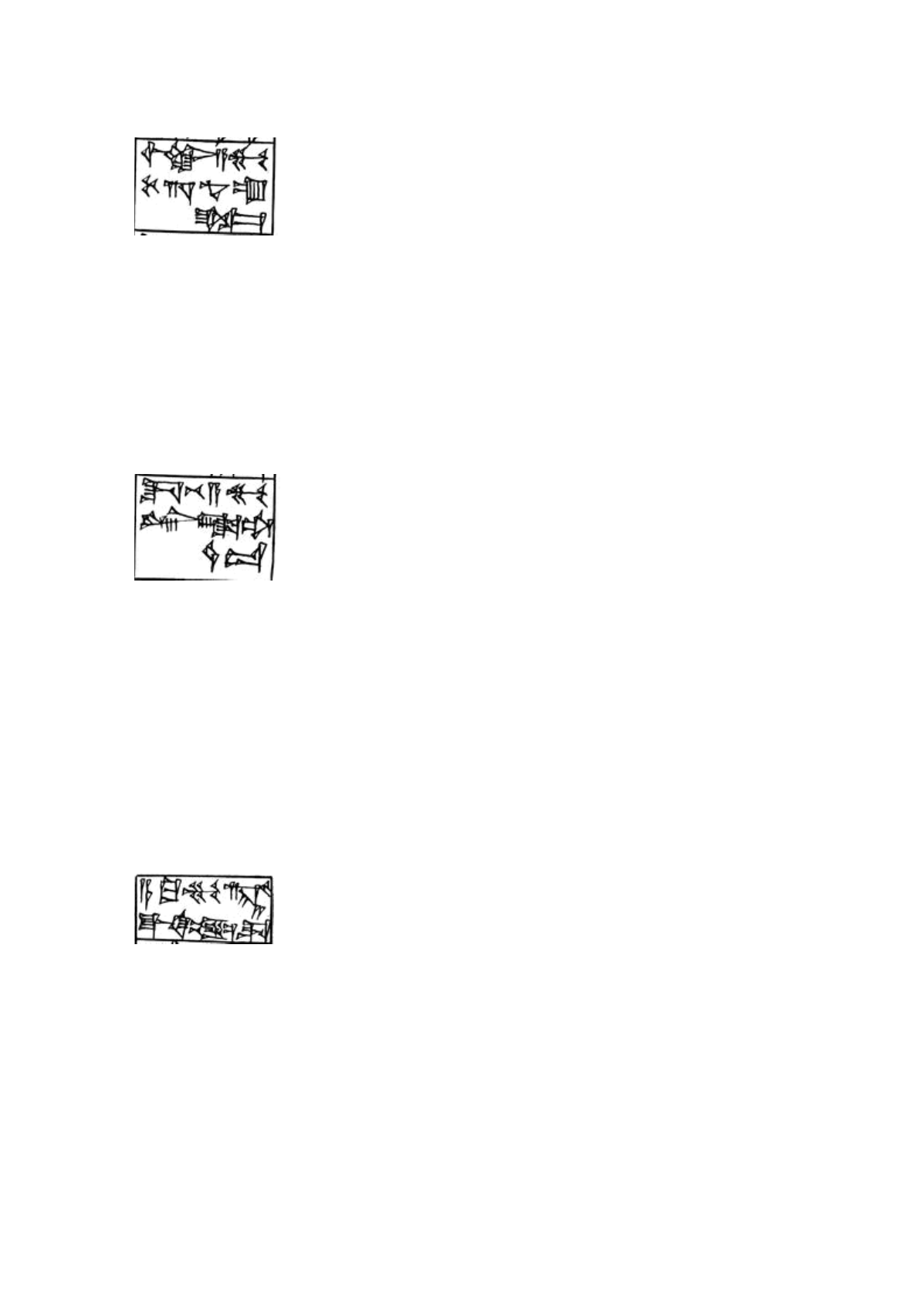

141
Gudea di Lagash – La costruzione del tempio di Ninjirsu - Cilindro A
A IX.25 - 246
igi.huš.a.ju 10
kur.re nu.um.il2
igi.huš.a.ju 10
kur.e nu.i
3
.
b.il 2Il mio sguardo terribile, (nessuna) terra può sostenerlo;
huš : vedi A VIII.6; .a è un nominalizzatore?
kur.e : col marker dell’ergativo
nu.i
3
.b.il2
: si tratta di una forma
marû
(il
2
: regular verb o reduplication class?); “er erträgt ihn nicht”; per la
forma
nu.um.il 2vedi GSG1.181, 199; nu. è l’MP del negativo (GSG1.225) e .b il PA relativo al paziente:
igi.huš.a.gu 10
(anteposto per metterlo in evidenza : GSG2.8); igi…il
2
: “to lift the eyes” (both with and
without .ši) (TSL.308).
A IX.26 - 247
DA.bad.a.ju 10
lu
2
la.ba.ta.ed2
a
2
!
.bad.a.ju 10
.ta lu
2
nu.ba.ta.ed2
dalle mie braccia spalancate, nessuno fugge.
a
2
: il testo riporta invero il segno DA (cfr. GSG1.116n4)
bad.a : participio passivo (GSG1.142) di bad : “to open; to let out; to go away; to be at a distance; to drive
away; to separate, remove” (SL)
a
2
.bad.a.ju 10
: costituisce un ablativo anteposto (GSG2.11); senza marker .ta esplicito, dopo il suono -u
(GSG1.116), ma cross-ref.
la.ba: per
nu.ba(TSL.190; GSG1.45)
nu.ba.ta.ed2
: è una ‘Normalform’ di verbo intransitivo/passivo (GSG1.175); nu è l’MP del negativo
(GSG1.226); .ba è il CP (GSG1.191,192); .ta è il DP dell’ablativo (GSG1.116); ed
2
(e
3
): “to go out,
emerge; to send forth; to lead or bring out; to rise; to sprout; to be or become visible; to appear as a
witness (the final d appears in
marû
conjugation)” (SL)
A X.1 - 248
a.ugu
4
.ju
10
nam.gal ki aja
2
.da
a.ugu
4
.ju
10
.e nam.gal ki aja
2
.eda
Il padre che mi ha generato, a motivo del suo grande amore
a : “padre” (“water; watercourse, canal; seminal fluid; offspring; father; tears; flood” SL); ugu
4
[KU] :
“engendrer” (PLS.148); “to bear, procreate, produce” (SL); “to give birth (to)” (PSD2.266); a.ugu
4
: “le
père qui a engendré” (PLS.17), “leiblicher Vater” (GSG1.61); ugu
4
è un participio attivo (GSG1.135;
GSG2.71-72). Lett. “il mio padre-che-(mi)-ha-generato”
.e : marker dell’ergativo, contratto nel suono finale ‘u’ (GSG1.83)
nam.gal ki aga
2
.eda : “wegen der grossen Liebe” : aja
2
.eda è un infinito (GSG1.140); nam.gal “grandezza”;
“wegen der sehr Liebens” (GSG1.118n3); ki…aj
2
“to love” (SL)
















